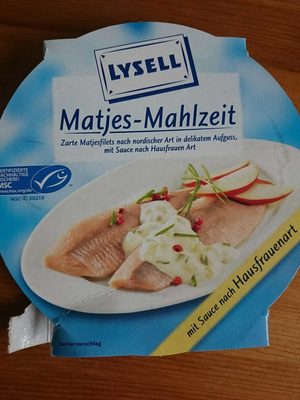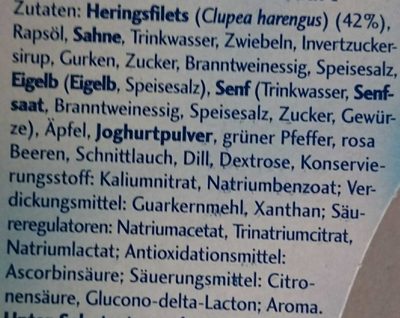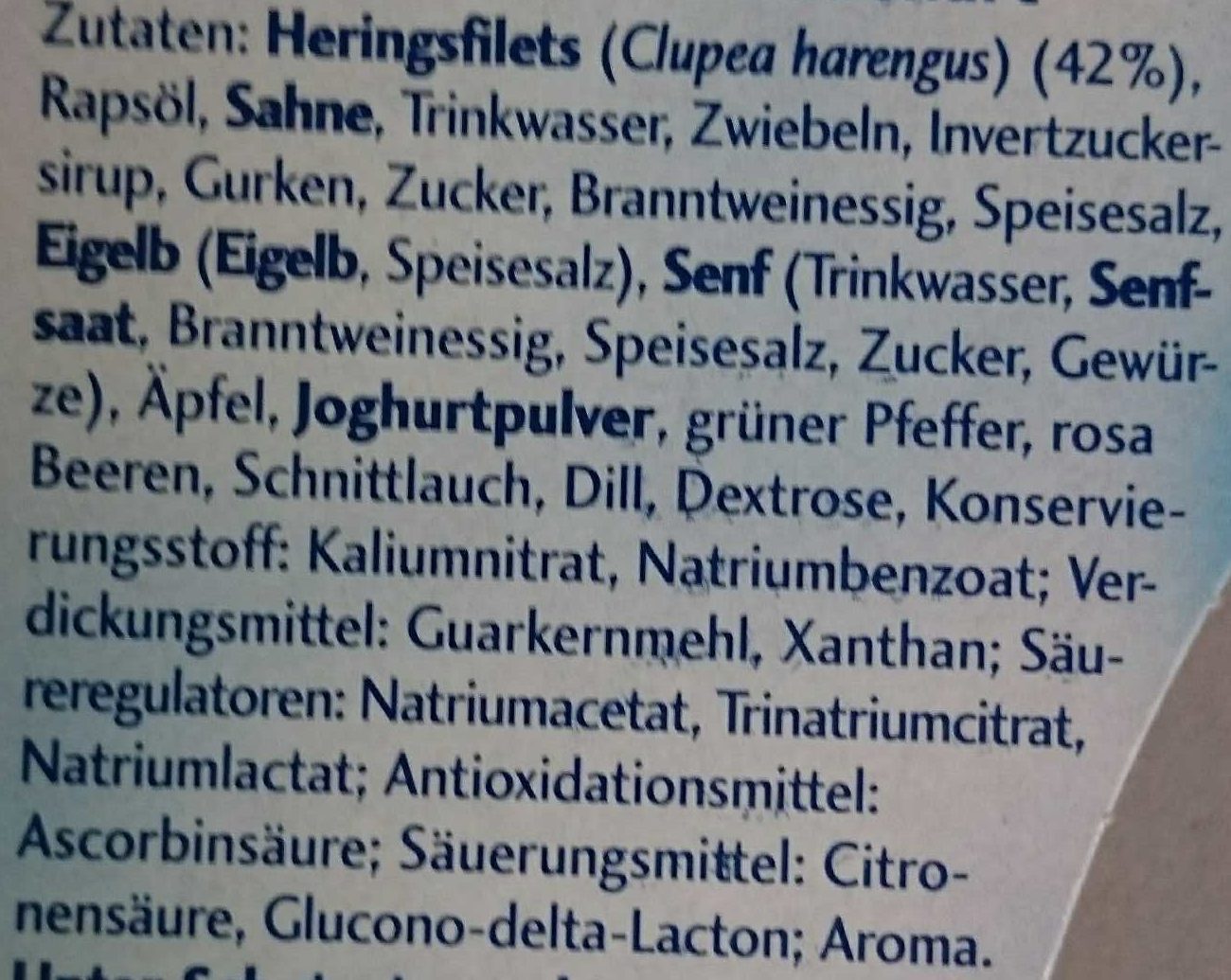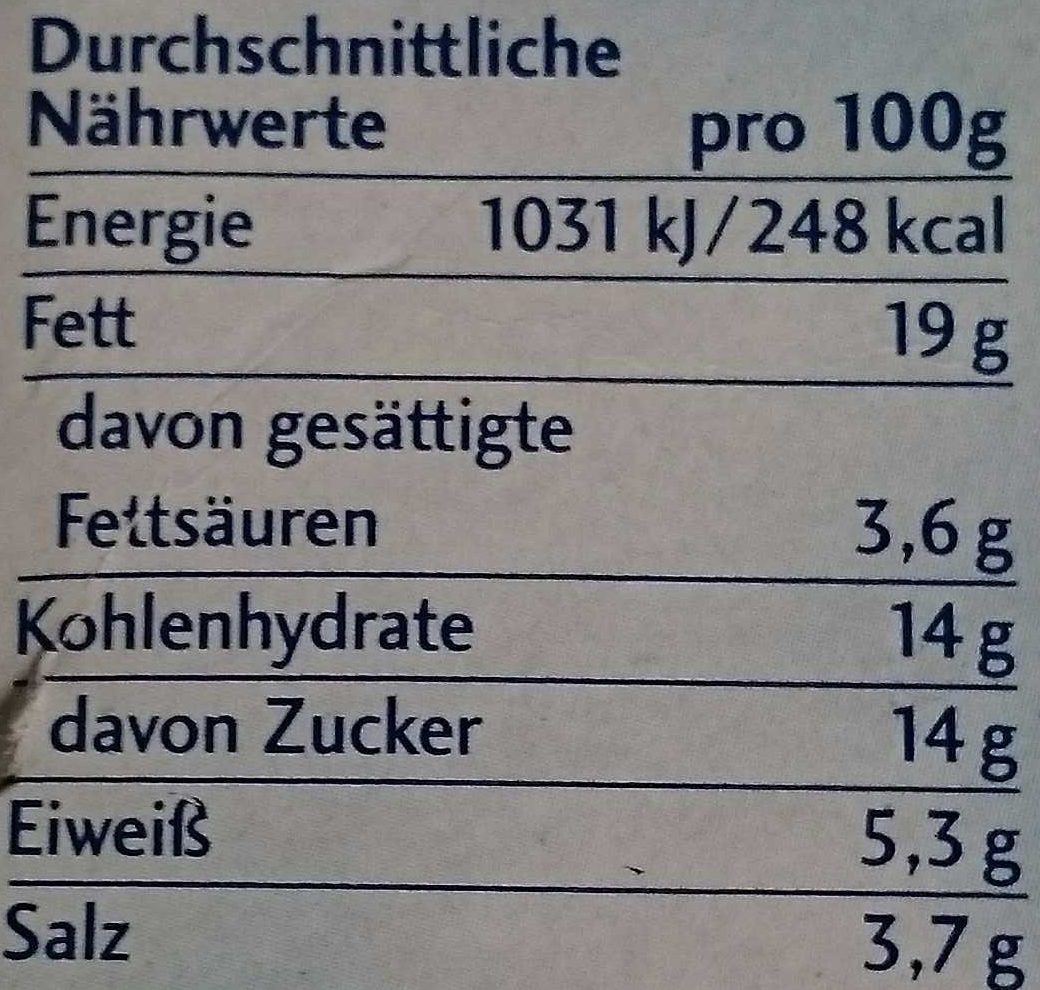Matjes-Mahlzeit - LYSELL - 250 g
This product page is not complete. You can help to complete it by editing it and adding more data from the photos we have, or by taking more photos using the app for Android or iPhone/iPad. Thank you!
×
Barcode: 4044491055732 (EAN / EAN-13)
Common name: Matjes
Quantity: 250 g
Brands: LYSELL
Labels, certifications, awards:
Sustainable, Sustainable fishery, Sustainable Seafood MSC
Traceability code: MSC-C-50219
Countries where sold: Germany
Matching with your preferences
Environment
Packaging
Transportation
Labels
Report a problem
Data sources
Product added on by baracoder
Last edit of product page on by teolemon.
Product page also edited by roboto-app, sil.
If the data is incomplete or incorrect, you can complete or correct it by editing this page.









